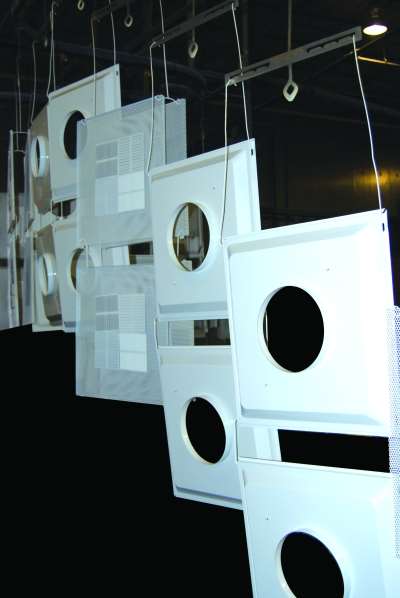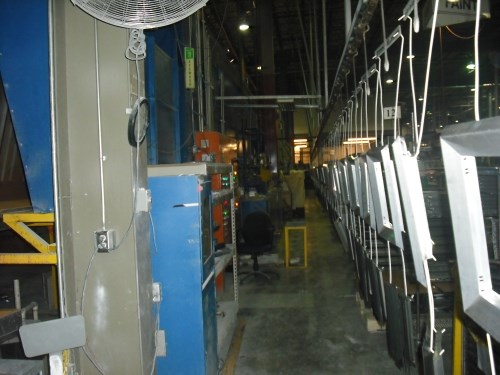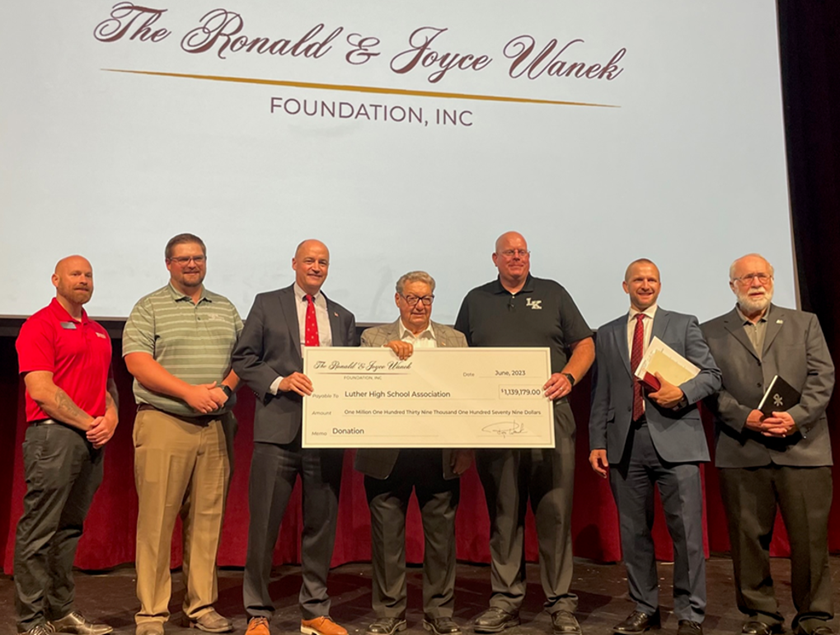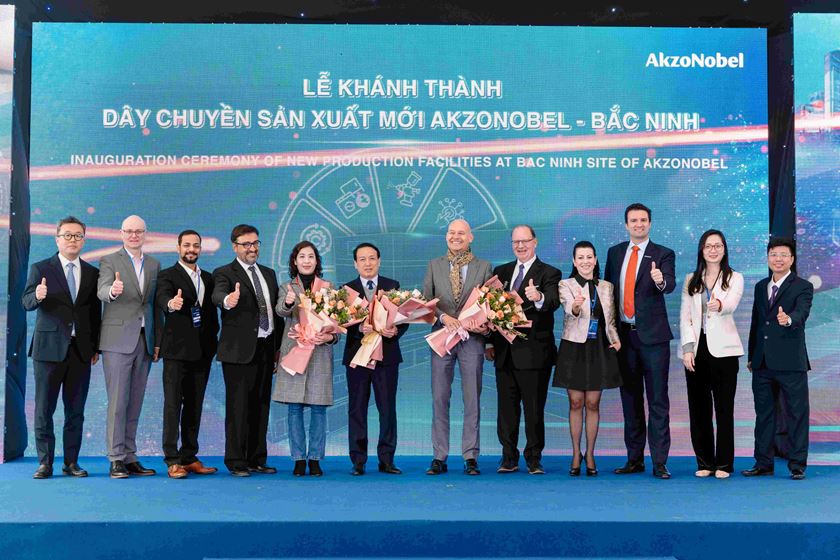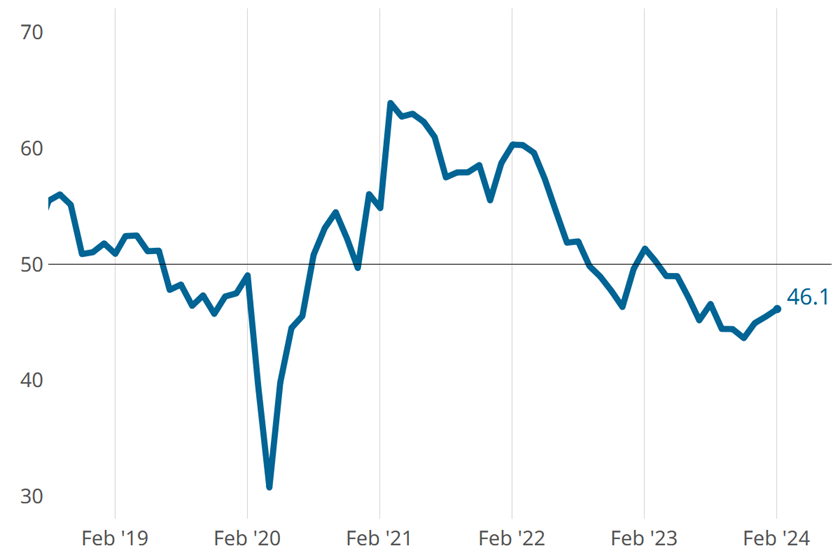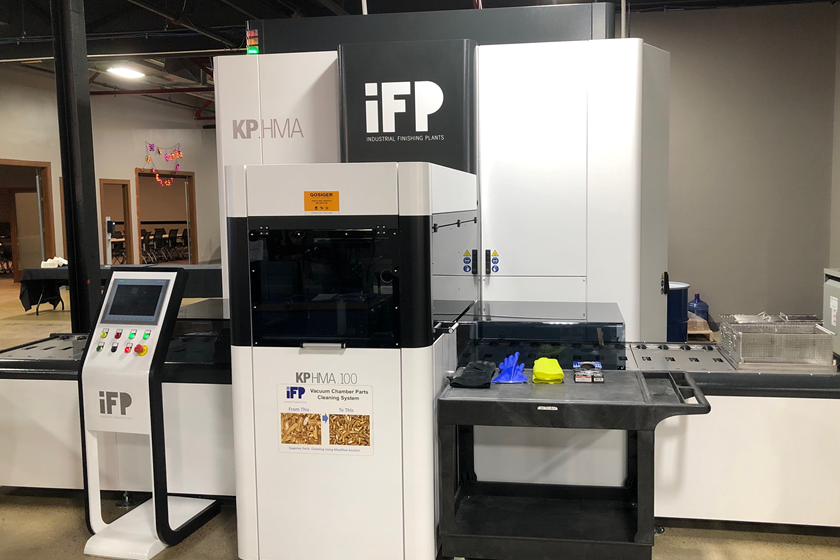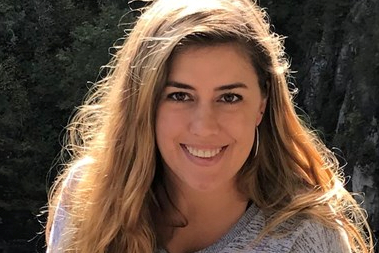Published
Price is Finally Getting It Right With Coral Chemicals
How one company changed chemical baths and saw improved products and cost savings.
Contributor
Its 5 a.m. on a Saturday morning … do you know where your chemical rep is?
If you’re Johnny Sessums from Price Industries (Suwanee, Ga.), you know he’s right outside your plant door ready to help with chemical tank drops and line evaluations.
Sessums, the plant manager for the maker of HVAC grilles, registers and diffusers, knows that his Coral Chemical Co. (Zion, Ill.) rep is always ready to take a peek inside Price’s baths, offering an assessment of what is right and wrong with their current setup.
“They’re honest with us,” says Sessums, before adding with a grin, “Brutally.”
Coral technicians check all four stages of the process, from pH to titration to chemical logs to make sure they are being filled out properly. The tech also checks to make sure the system pumps are working right, and eventually prepares a lengthy report for Price supervisors to review and make changes if needed.
“They keep us honest,” Sessums says. “And that’s what we want. We shoot for perfection because of the quality we are after.”
Perfection wasn’t something Price and Sessums were getting several years ago with their conventional baths that prepped their equipment for powder coating. Failure was a better word, and it was occurring often.
“It wasn’t good,” Sessums says. “We were having some pretty severe salt spray failures across all the substrates we run. We were seeing failures at down around the 200 hour mark, which is not at all where we wanted it to be.”
And failure really couldn’t be an option for Price, when one of its specialties is installation in hospital operating rooms, isolation rooms, research facilities, process labs and pharmaceuticals, where a problem in air handling equipment is a major no-no.
For example, Price has installed many of its air handlers in operating room for burn centers, where life saving surgeries must be performed in conditions with optimal air handling systems to minimize the risk of airborne infection in patients.
“It’s a critical environment for them,” says Peter Dority, Coral Chemical’s vice president of sales and marketing. “We saw the problems they were having, and we knew how important it was to get them to the quality they needed to get at.”
Coral and Sessums began testing the Coral Eco-Treat products in the Price baths in July 2009, and then transitioned to Coral products fully by the end of that year. The products were used on substrates such as aluminum, cold roll steel, galvanneal and aluminized steel.
Dority says each Coral Eco-Treat product is designed for specific metal mixes, lines and times/temperatures ratios. After researching the Price pretreatment line, Coral Chemical came up with a process recommendation that has worked well in the past several years.
“We’re pulling ratings of a perfect 10 at 500 hours, but I know that our results are considerably higher than that,” Sessums says. “We’re at 500 hours on scribed panels, and exceeding 1,000 hours on unscribed panels, so we’re happy with where we’re at.”
The result has been remarkable. Price has shipped more than 30,000 powder coated products in the past year, and has been more than 99.99 percent on time in the past three years.
The company has had just five late orders in three years, which has helped its reputation and increased market share.
“You can’t put up those numbers without good service from our vendors,” Sessums says.
Dority says Coral has chemicals in two of Price’s five stages and is using two rinses. And heat is only necessary on the first cleaning stage, compared with two stages that required heat on the previous lines.
“Our Coral Eco-Treat treatments are all used at room temperature, and they all employ vanadium to provide enhanced corrosion performance,” Dority says. “We looked at a range of chemistries to meet their specific conditions in terms of washer design, coatings and substrates.”
Dority says that the Coral Eco-Treat pretreatment process contains no phosphorous and operates at a pH around 3.5 to produce the results for Price on all production substrates.
Price has ongoing quality tests done by both Coral Chemical and its powder coating supplier, Vitracoat America. The two companies rotate each month on the testing of the salt spray samples.
“I want to make sure that the honesty is there, and both company’s numbers are parallel,” Sessums says. “It’s almost a perfect match. It’s not that I don’t totally trust my vendors, but I want to see results. And so far it has been phenomenal.”
Price traces its problems back to when it was running a Coral competitor’s “all-in-one” chemical in the first three stages with a rinse in stage four. That meant they were having a chemical charge of 4, 3 and 2 percent in the first three baths.
With the new Coral setup, they have a four-stage washer: cleaning in stage one, rinsing in stage two, treating in stage three and rinsing in stage four. But because Price is only charging two of its current stages—and with the cheaper cost of Coral products—they are seeing a 25-percent reduction in charging costs over the old system.
But those cost savings almost flew under Price’s radar screen when the company noticed the quality boost to the products they were producing.
“It wasn’t that we weren’t interested in cost savings, but it’s just the quality of our products was so much better that the overall savings was a secondary consideration for us,” Sessums says.
But more than just getting the chemistry right, Price executives have been impressed with Coral Chemical’s customer service.
“Their hands-on training is second to none,” Sessums offers up without hesitation. “Every painter on the line got training, including classroom training. Let’s just say I sleep better at night.”
Coral reps are at Price’s plants each week, and prepare an extensive monthly report on what they see and hear from their inspection of the chemicals and operations. On a quarterly basis, the Price finishing staff sits down with Coral Chemicals and Vitracoat America to look at test results, operations and chances for additional cost savings.
“They’re an extra set of eyes for me,” Sessums says. “That brutal honesty is needed at times.”
When Coral does their inspections of the Price systems, they are 100 percent surprise audits. That keeps the Price finishing line on its toes at all times.
“We don’t know when they’re coming, so we can’t do anything special to prepare for them,” Sessums says. “They could walk in the door at any second of any day to check on things.”
And it’s not always the same shift when they do show up. One time it could be first shift at 8 a.m. in the morning, and the next time it’s 9 p.m.
“I didn’t have that with the other vendor I was using,” Sessums says.
For more information about Coral Chemical, please call 800-228-4646 or visit Coral.com.
RELATED CONTENT
-
Calculating Oven Heat Load Capacity
Please explain how to calculate the heat load capacity of a paint baking oven, using aluminum alloy wheels as an example.
-
Proper Testing of a Powder Coat Finish
Manufacturer shows how it performs extensive tests on powder coated medical carts.
-
Preparation of Stainless Steel for Powder Coating
Should type 316 stainless steel castings be sandblasted before powder coating, or can they be chemically etched? Should the parts be pre-heated in an oven before coating?


